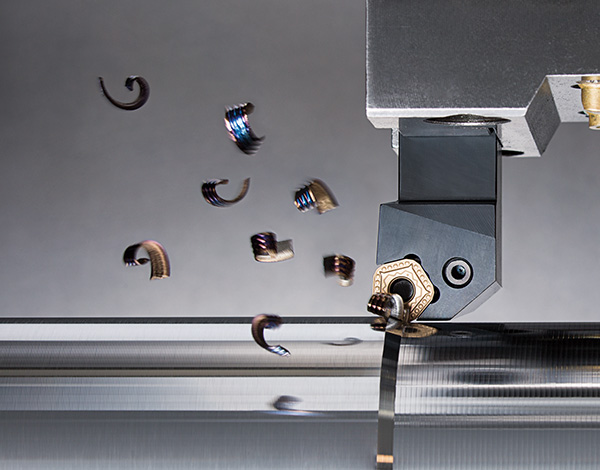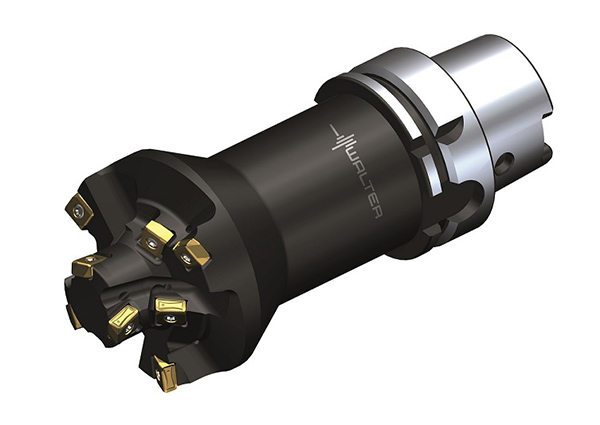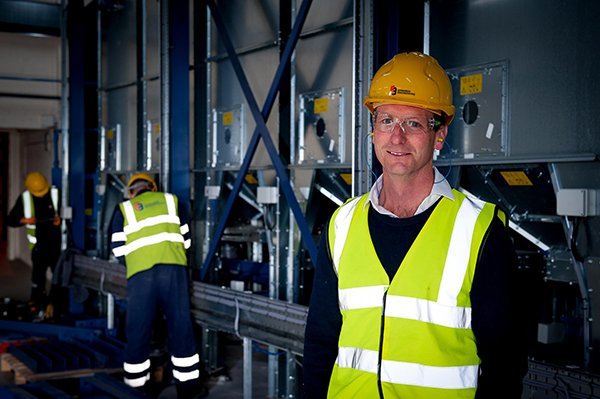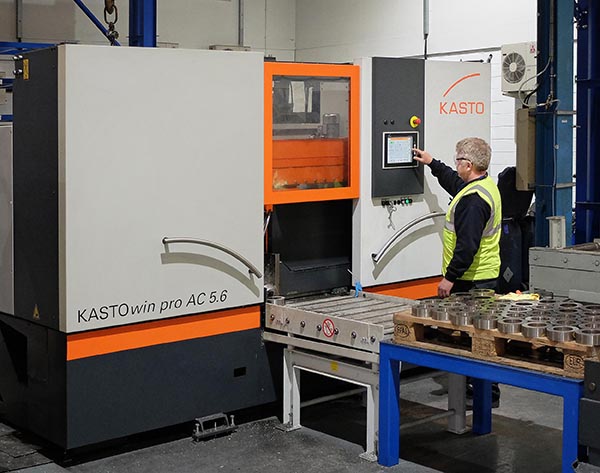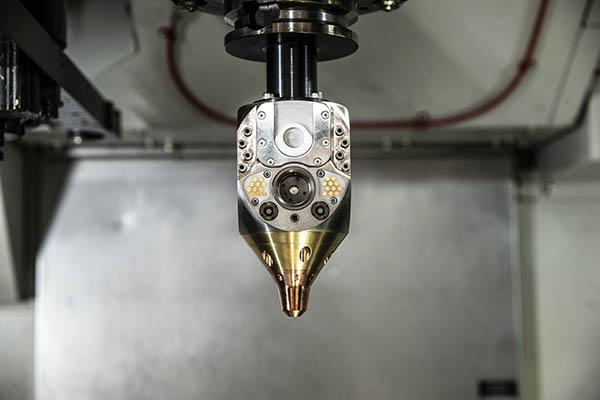A specialist stockholder serving the oil and gas industry, Howat Group, perhaps better known by its trading names AMS, ESS and Ancon, has installed a 14th Kasto bandsaw – a KASTOwin pro AC 5.6 – at its new centre in Barnsley, which opened at the end of 2018. The facility represents an investment of more than £2m by owner Malcolm Howat, and has been timed to coincide with the oil and gas sector’s nascent emergence from a downturn that started in 2014.

Half of the sum went on acquiring a freehold, 60,000 sq m property on Cortonwood Drive in the Dearne Valley area of Barnsley. The remainder was spent on infrastructure, materials handling equipment, two further Kasto bandsaws and refurbishment of all the older models, some of which have been in service since the 1990s and still cut accurately.
The German-built KASTOwin pro, supplied ex-stock from the manufacturer’s UK subsidiary in Milton Keynes, is a competitively priced machine designed for cutting tough nickel, titanium and stainless steel alloys up to 560 mm in diameter using a tungsten carbide-tipped (TCT) blade. However, the machine also allows economical cutting of low-alloy steels when the blade is swapped for a high speed steel (HSS) bi-metal type.
Howat’s operations director Emma Parkinson says: “We have four dedicated carbide cutting bandsaws on site which include KASTOtec AC5s and now the KASTOwin pro, which is even more capable. They are ideal for cutting our Inconel 625, 718, 725, 825, 925 and K500 stock. Our latest investment was to increase our overall cutting capacity but also to improve efficiencies around nickel alloy cutting specifically. The remainder of our sawing machines with capacities up to 800 mm diameter are intended for bi-metal cutting, but can also use TCT blades with offset teeth.”
She adds: “The advantage of the latest KASTOwin pro saw, apart from its ability to use either type of blade economically, is its high productivity, which is down to fast cutting speeds and quick set-up using the new touchscreen control.”

Programming is fast with the Kasto EasyControl, as cutting parameters for any given material, size and cross section are determined automatically by a built-in database, so all that is needed is to enter the cut length and number of pieces required, and press start.
The productivity benefit is most pronounced when cutting nickel alloys. Formerly, the company was sawing Inconel 718 with a TCT blade at 3 to 4 cm2 per minute, but on the KASTOwin pro that has risen to an average of 12 cm2 per minute. So, for example, a 200 mm diameter bar that would previously have taken up to 90 minutes to cut can now be processed in less than half an hour.
Parkinson explains that she was familiar with the benefits of the latest German-built bandsaws compared with the performance of the legacy machines, having worked with this make of saw when previously employed at another stockholding company.

So when Howat Group, one of the largest stockholders in the UK, needed more capacity to cope with an increasing number of high volume orders for nickel alloy billet and low-alloy steels, the KASTOwin pro was a logical choice. The large batch sizes frequently ordered make it economical to spend time changing from an expensive TCT blade to bi-metal, to extend the life of the TCT teeth.
A feature of the automatic KASTOwin pro is its electro-mechanical down-feed via two ballscrews, each with a servo drive for precise, infinitely variable control. The positive motion allows smaller tolerances to be set, typically -0 / +0.5 mm for most stock, minimising material wastage. There is a retraction unit for separating the blade from the material to protect the cut surface when the saw head moves back, which also helps to minimise tool wear.
The band is driven by an 11 kW motor, delivering infinitely adjustable cutting speeds from 12 to 150 m/min, and providing plenty of capacity for TCT sawing. Helping to dampen vibration and lower noise during operation are ‘Trum’ guides mounted at the return side of the blade, inside the top of the saw head guarding. These guides suppress vibration on the side opposite from the cutting action, prolonging blade life and promoting high squareness accuracy and good surface finish.
Partly due to larger orders being received, and because of the high value of nickel-based metals, Howat Group’s monthly turnover trebled within a few months of the stockholder opening its new facility. Key to maintaining growth is providing customers with a high quality service in terms of prompt delivery of material that is within tolerance.

Parkinson concludes: “It is for this reason that we have more or less standardised on Kasto sawing equipment and see the supplier as a partner to our business. We regard the manufacturer as a premium brand whose rigid and technologically advanced bandsaws maximise blade life and cut accurately for decades, despite heavy use.”
For further information www.kasto.com







